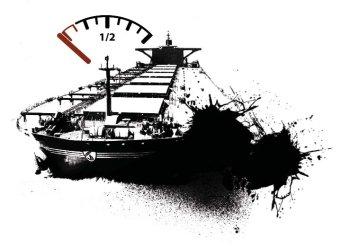Risky Business
By Anna Kitanaka
Japan’s past is full of political instability and military unrest. However, since the war Japan can be seen as a mainly peaceful country. Unable to engage in anything other than defensive military action under the constitution, Japan has been limited when it comes to involvement in wars and conflict. Yet the country is still at risk of political volatility and economic uncertainty. Here, we take a closer look at just some of the political risks the country faces today that have the potential to affect those with Japan-related financial or business interests.
The North Korean Threat
 Illustration by Simon Rozner (www.gameonaut.com)
Illustration by Simon Rozner (www.gameonaut.com)
Japan’s troubled relationship with North Korea means there is a small but significant risk of Tokyo being the target of nuclear missile attacks. In 2006, North Korean missiles actually dropped down in the Sea of Japan and this was taken as “provocative behavior” by the Japanese. It used to be thought that the North might hold Tokyo nuclear hostage in the event that it forcibly tried to reunite with the South—a possible scenario given that the Korean War is not officially over. In more recent years, the relationship between the two Koreas has improved but bilateral ties between Pyongyang and Tokyo remain icy. Tensions concerning abductees and textbooks threaten to cause a further deterioration of relations. Moreover ‘Juche,’ the political ideology of the North Korean state, is strongly anchored in anti-Japanese sentiment. Kevin Liu, Asia analyst for Exclusive Analysis, a political risk consultancy based in London, believes that the main issue concerning North Korea’s threat to Japan and the rest of the world lies in whether Kim Jong Il remains healthy or not. He believes that should the leader die, there is the risk of an internal conflict within the North Korean government as to who shall succeed him. If there is an unstable North Korean political situation, the disarmament measures are likely to come to a standstill and without complete denuclearization and disarmament (which is unlikely according to Liu), there will be a dangerous lack of predictability.
Optimists point to the better relationship between the two Koreas and think this might prompt North Korea to improve its diplomatic relations in the region. According to South Korean president Roh Moohyun, Kim Jong Il has told him that he clearly recognizes the need for relations between North Korea and Japan to normalize. Prime Minister Fukuda has also said in a conversation with Roh that “Japan is prepared to offer economic assistance to North Korea once the issues over nuclear weapons, abductions and missiles are resolved and the two countries normalize relations.” But for the time being, the missiles and hatred are a little too close for comfort.
Extremism in Japan
On the surface, Japan looks like a politically stable country with no fear of civil conflict. The country has recently implemented mandatory finger-printing of foreigners when entering the country as part of their ‘Anti-terrorism strategy.’ However, the truth remains that all terrorism attacks to date have been home-grown. Below the surface of this orderly country, there are a number of radical political organizations which although marginal, have a record of violent activities. In the 1970s, a left-wing extremist group called the Japanese Red Army was rampant in its mission to cause instability, overthrow the Japanese government and monarchy and install a communist regime by starting a revolution. It was also one of the first groups to be declared as a terrorist organization by the US, partly as a result of its close ties with the Popular Front for the Liberation of Palestine.
 Illustration by Phil Couzens (www.freesouldesign.co.uk)
Illustration by Phil Couzens (www.freesouldesign.co.uk)
Most famous for their suspected involvement in a machine-gun attack on the Israeli Lod Airport in 1972, the Red Army’s terrorism reign came to an end in the 1990s. However, the former members are still on the police’s ‘Most Wanted List.’ A more recent threat comes from the Kakumeigun (Revolutionary Army), an extremist leftwing organization established in 2000. It strongly opposes the deployment of troops in Iraq and have claimed responsibility for several incidents, the most recent being an explosion near the military base Camp Zama in Kanagawa in early 2007. The group also stand against any potential plans for Japan, the US and South Korea to take military action against North Korea.
Japan also faces problems from the extreme right. The Kenkoku Giyugun Chosen Seibatsutai (Voluntary Army Unit for Punishing Korea), is a nationalist organization that is particularly opposed to North Korea, regularly attacking Korean headquarters in Japan. Although there have been no casualties so far, the group is not hesitant to use violence. According to the MIPT Terrorism Knowledge Base, “The group has not claimed responsibility for any attacks since late 2003, but there is a possibility that the group could reemerge given the current political climate between Japan and the Koreas.” Stuart Witchell, Japan Representative for intelligence and investigation consultancy firm International Risk, believes that threats to foreign companies operating in Japan come mainly from right-wing groups. “In the past these groups would regularly target foreign investment companies. However, nowadays only a few right-wing activists have the support and funding to undertake such activities. Their relationships with Japanese organized crime and influence in political circles is however still strong.”
Entrapment in Taiwan Straits Conflict
Taiwanese President Chen’s support for a referendum next year on whether Taiwan should enter the United Nations under the name Taiwan, a move slammed by Beijing and Washington as needlessly provocative, is the latest example of rocky relations between Washington and Taipei. Bush’s efforts have largely been to decouple the US from the Taiwan Straits conflict. However, if US–China relations deteriorate, the most likely arena for a conflict would be across the Taiwan Straits, on Japan’s southern doorstep. Given the US bases in Okinawa, and the fact that Japan’s security relationship with Beijing is shaped by Washington, there is a risk of entrapment if any conflict arises.

Officially, Japan cannot cooperate on security issues with Taipei as Tokyo sticks to the one-China principle. However, if Beijing took over Taiwan by force, Washington and Tokyo would be opposed to such an action even if they shied away from military intervention. A strong contingent of Japanese politicians are sympathetic with the Taiwanese cause.
Kevin Liu doesn’t think any US president would risk jeopardizing relations with China for the sake of Taiwan and this can probably be said for Japan as well. China is now Japan’s top trading partner and any risk in jeopardizing relations would be incomprehensible given the fear of China as a growing economic superpower. Nevertheless, internal changes in China or growing tension in the US–China relationship could signal turbulent times for Japanese security.
Island Disputes
An ongoing headache for Japanese security advisors are the island disputes with Taiwan, China, South Korea and Russia. So far, the problem has remained a relatively peaceful issue but should the disagreement gain momentum, Japan could be at risk of involvement in a military conflict.
Starting with Taiwan and China, the Senkaku/Diaoyutai islands’ sovereignty are claimed by Tokyo, Beijing, and Taipei. East Asian experts Lam Peng-er and Ja Ian Chong (“Japan–Taiwan Relations: Between Affinity and Reality”, Asian Affairs 2004) believe that “due to the greater importance of their overall relationship, Tokyo and Taipei downplayed this issue of sovereignty.” However, at times Tokyo takes a very strong line on the Senkaku/Diaoyutai dispute and Japan’s position always hardens when disputes are subjected to publicity. Previously, there were suggestions that the Foreign Ministry of Japan was willing to settle this dispute and surrender its sovereignty but nationalists have called for the disputes to be pushed forwards and have even asked for military action should China near the Japanese boarder. There is a small risk of this ballooning into a war but this could be a flashpoint in the case of an increase in Sino–Japanese tensions.
Japan also has a 60 year long dispute with Russia over the Kuril islands—the island chain stretches north across the Pacific Ocean from the Japanese island of Hokkaido to the southern tip of Russia’s Kamchatka Peninsula. Because of this dispute, Russia and Japan have still not signed a peace treaty to end World War
II. Although Japan officially had ownership of the islands in 1855, Russia took control of the islands after the war and in 1949, deported all the Japanese residents.
As in the case of other disputes, calls for a tougher line, and occasionally for militant action come from right-wing groups such as the Nihon Izoku Kai (War Bereaved Society) who see the islands as a symbol of Japan’s territorial integrity. The dispute shows little sign of being resolved and is a serious thorn in the side of Russo–Japanese relations.
Finally, Japan has a similar situation with Korea concerning the Dokdo/Takeshima islets that again, though unlikely to lead to direct military conflict, have the potential to cause civil unrest or could become a bigger issue if the government in either Seoul or Tokyo decided to play to popular nationalist sentiment.
Japan’s Energy Supply
There is no denying that Japan is an energy resource poor country and any disruption to the importing of energy sources to Japan would be crippling. Regional conflicts, superpower military intervention, regime change or destabilization could all cause a major disruption in Japan’s energy supply.
90% of Japan’s oil supply comes from the Persian Gulf. The Strait of Hormuz is one of the world’s most strategically important areas with Iran at the north coast and the United Arab Emirates to the south. According to the Japanese government, political instability and terrorism in the Middle East constitute two of the biggest threats to Japan’s energy supply. In October 2002, Al Qaeda attacked an oil tanker off the Yemen coast, demonstrating the terrorists’ ability to harmfully affect a country’s economy. Insurance rates tripled after the attack, thus causing economic instability. On top of this, some analysts suggest that instability in the region will cause other Middle Eastern oil producers to try and keep prices high. Shipping company Kawasaki Kisen (K-Line) said its net profit for 2006 was 41% lower than in 2005, largely due to the higher cost of fuel. According to the Jamestown Terror Monitor, “very clearly, an oil price rise of that magnitude in a shipping firm will also have a significant impact on the Japanese economy as a whole.”

Japan’s Energy Security Group identified that in 2006, sea lanes in general, but the Malacca Straits in particular, as the areas most vulnerable to an attack. In 1999, pirates attacked the Panamanianregistered cargo ship Alondra Rainbow and left the crew, including the Japanese captain, afloat in lifeboats. 80% of Japan’s oil passes through the Malacca Straits yet in 2004, there were roughly 200 pirate attacks in Asia alone and some of these also involved kidnapping of Japanese crew members. Although piracy fell worldwide, the number of violent incidents in the Malacca Straits rose.
Gas too is a vulnerable resource. Japan is increasingly competing with China and other regional emerging economies to secure pipelines—a weakness that Russia has exploited in teasing the country with promises of a Sakhalin pipeline. Without diversification into other energy sources, Japan risks facing major energy shortages that could cause political enfeeblement.
Should any terrorist incident occur, oil and gas prices would soar and insurance would also reach tremendous heights, potentially triggering an economic downturn spiral. Japan needs to secure an unwavering supply of energy resources for future stability or else she will forever face political and economic uncertainty.JI





